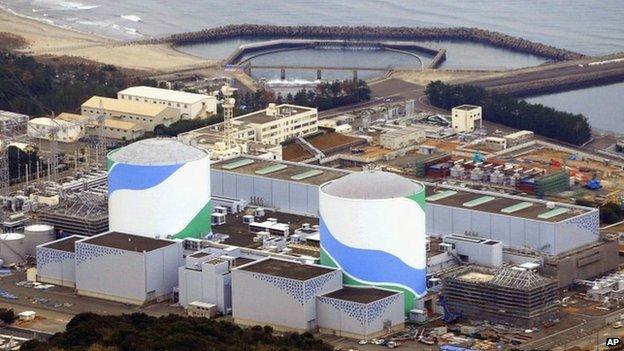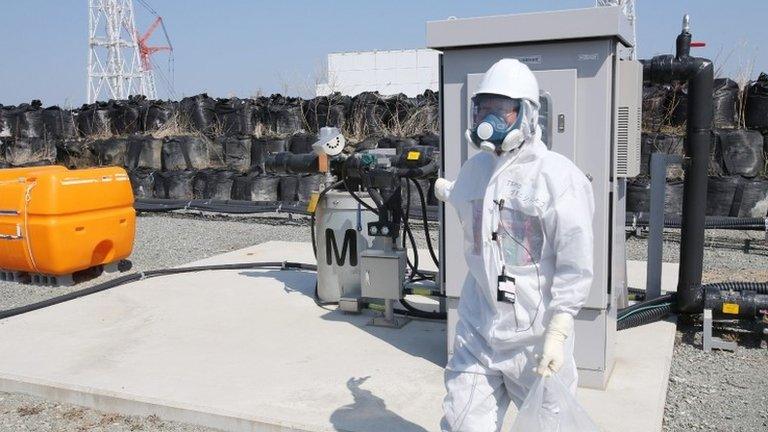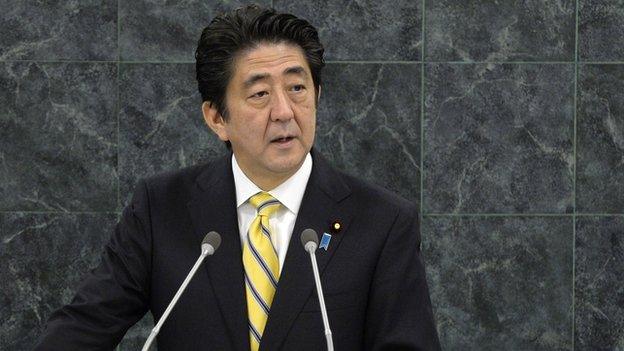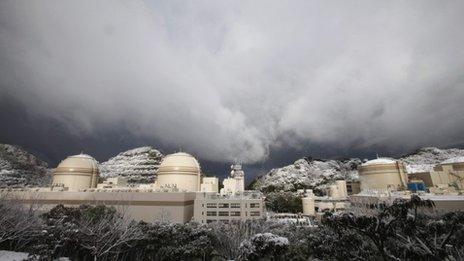Two Japan nuclear reactors pass restart hurdle
- Published

A month of public consultation will now take place ahead of any restart
Japan's nuclear regulator has given preliminary approval for two reactors at a nuclear plant in the south of the country to restart.
The Nuclear Regulation Authority (NRA) said the reactors at the Sendai plant had met new standards introduced after the Fukushima disaster.
These are the first two nuclear reactors to pass this hurdle.
All Japan's 48 reactors are currently stopped, but PM Shinzo Abe has been pushing for restarts where possible.
The Japanese public turned against nuclear power after the meltdowns at the Fukushima plant in 2011.
Before the accident, which was caused by a massive earthquake and tsunami, nuclear plants supplied about 30% of Japan's power.
But since then the plants have been closed, either for scheduled maintenance or because of safety fears, and have not been restarted.
Japan's last reactor, at Ohi in western Japan, went offline in September 2013.
The NRA said the Sendai plant, in southern Kyushu, had met new safety standards intended to guard against damage from natural disasters.
A month-long public consultation will now take place before the NRA issues a final decision.
Earlier this year, Mr Abe's government approved an energy plan backing the use of nuclear power, despite public anxiety.
The plan reversed an earlier decision to phase out nuclear power by a previous government.
Trade and Industry Minister Toshimitsu Motegi said at the time that Japan had to opt for an energy supply system that was "realistic, pragmatic and well balanced".
- Published21 May 2014

- Published11 April 2014

- Published15 September 2013
